Teeth Whitening
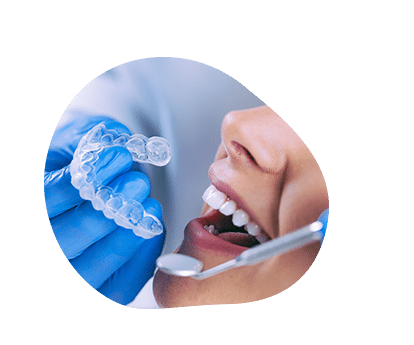
CAN TEETH WHITENING GIVE YOU WHITE TEETH?
Can teeth whitening give you white teeth – the first beauty standard?
You’re probably wondering why some people naturally have bright white teeth, while yours are yellow.
The secret lies in the tooth enamel. Tooth enamel is the outer layer of the tooth, covering the dentin, which is actually yellow.
Some people have extremely thin enamel, making the yellow color of the dentin more dominant. On the other hand, those with exceptionally white teeth have a thicker enamel layer. Tooth color is also influenced by genetics, various developmental disorders, and the use of certain medications.
Teeth whitening is the fastest and easiest aesthetic solution for your smile.
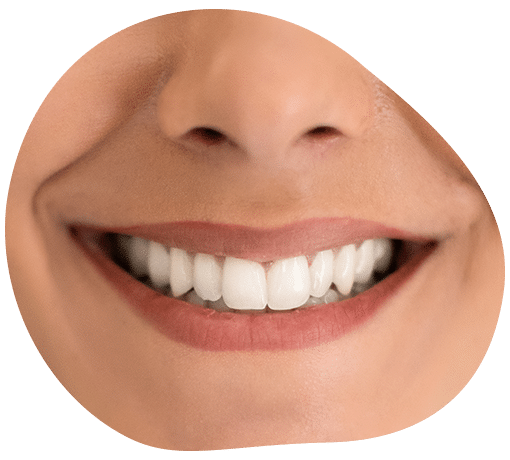
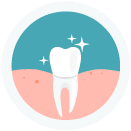
WHY DO TEETH BECOME MORE YELLOW OVER TIME?
HOW DOES THE TEETH WHITENING PROCESS WORK?
Teeth whitening actually creates new chemical compounds, which our eyes perceive as a lighter shade. This chemical reaction does not produce any substances harmful to the teeth, nor does it extract any components from the enamel or dentin.
The entire process is completely safe and does not damage the enamel or dentin.
Each person has a different amount of pigment in their teeth. The more pigments that bind and transform into these new compounds, the whiter the tooth will become.
In-office teeth whitening delivers visible results in a short time—teeth become 3 to 4 shades whiter. However, the longevity of the achieved color largely depends on your hygiene and habits, such as smoking, consuming certain foods and spices, and drinking colored beverages like coffee, tea, red wine, and carbonated drinks.

BENEFITS OF TEETH WHITENING
- Reliable Method
Professional teeth whitening at a dental office is completely safe. When you buy a whitening kit in a store, you never truly know what you’re getting and whether the product is good for your teeth. A dentist examines your teeth and performs the whitening process professionally, ensuring the best results, determining whether whitening is possible, and providing guidance on post-whitening care.
- Faster Results
Unlike at-home whitening treatments, professional teeth whitening can transform your smile in just one hour. You don’t have to wait weeks to see a change in your teeth’s appearance, which is a major advantage.
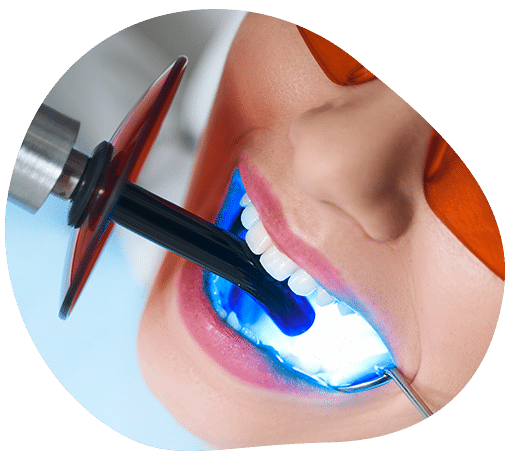
TYPES OF TEETH WHITENING

The concentration of whitening gels used

The duration of the whitening process

In-office whitening is performed under a dentist’s supervision
AT-HOME TEETH WHITENING
At-home whitening involves taking an impression of your upper and lower jaw during the first visit. In the next visit, you receive a custom-made whitening tray, into which lower-concentration gels (10%, 16%, or a maximum of 22% carbamide peroxide) are applied. The tray is worn overnight. Typically, within 2 to 3 weeks, you achieve the desired shade.
PROFESSIONAL IN-OFFICE TEETH WHITENING
In-office whitening uses a more concentrated gel compared to those available for home use. The gel contains 38% carbamide peroxide or hydrogen peroxide, and gum protection is mandatory before the procedure. Before whitening, any plaque and tartar must be removed if present.
Hvala na svemu
Poseban pozdrav za moju Ruźicu i Aleks❤️
S obzirom da je danas 8. 3. 2025., želim kolektivu Up Denta srećan dan žena, nastavite da kidate!🌷Za kraj ovog romana, veliki pozdrav i poljubac za moju doktorku Ružicu i Aleksandru- sestru po satiću! :****
Anastasija Milićević
Doktorka Tanja je pažljivo saslušala kako probleme, tako i želje koje imam, a onda sam dobio jasan plan šta će se raditi. Kada smo krenuli u rad, dato mi je objašnjenje za svaki korak kome se pristupa.
Smatram da doktorka Tanja ima veliku stručnost i preciznost.
Rezultat su nove krunice i desni koje su se vrlo brzo potpuno oporavile.
Prezadovoljan sam!
Veliko hvala celom Up Dent timu! Naravno, hvala i tehnici na odličnoj izradi krunica!
Predani, predusretljivi i uvek nasmejani. Vrhunska strucnost
Hvala Tanji i Up Dent timu❤️🍀
Sjajna i veoma profesionalna atmosfera koja cini da trema nestane.
Dr. Tanja and her team are highly skilled and knowledgeable. They performed a lot of work on my teeth, and I’m returning to the Netherlands with a healthy, beautiful smile.
Dr. Tanja did a fantastic job on my complicated root canals, and the crowns she placed are perfect—I can’t even tell the difference between them and my natural teeth.
Dr.Ružica also did a great job with my teeth whitening. The mild discomfort was well worth the incredible results.
The entire team made me feel comfortable and at ease, which is no small feat as I’m not the most relaxed person when it comes to dental visits. Despite this being the most extensive dental work I’ve ever had, I felt calm and well taken care of throughout.
In short, the UpDent team did an excellent job. I highly recommend them for any dental needs.
✨🩷💙🩵🤍💫
✅ Enterijer je uvek čist i mirisan, ali ne miriše onako usilno na zubara, nego na žensku pedanteriju!
✅ Jasno govore šta rade tako da znate šta vam se sa zubom dešava dok vam je otvorena vilica.
✅ Pažljivo prate svaku grimasu na licu i tačno znaju kada vas nešto boli da odmah reaguju.
✅ Ne pravi vam se bazen u ustima već vam, tokom intervencije, dozvoljavaju da često ispirete usta.
✅ A kada dođe trenutak poliranja zuba, bukvalno prave malo vajarsko delo!
♥️ I uvek ide neka lagana muzika u pozadini, a Jole voli i da zapevuši dok radi da bi vas opustila! Taj momenat mi je najdraži i uvek me nasmeje, iako zevam .. Hvala Jole! 🥹
Možda će zvučati neočekivano, ali ja se doslovno radujem svakoj poseti zubaru od kad sam Jole i Tanju izabrala za čuvare mog oralnog zdravlja! Sačuvale su mi kutnjak od trajnog propadanja, jer jako dobro znaju svoj posao. Pedantno, pažljivo i precizno. 🦷
Can’t wait to see you girls again! 😊
Zahvalna što sam vas otkrila!
Fillings, crowns, and veneers cannot be whitened, but whitening is often done as a preparation step for other procedures. For example, whitening is commonly performed before applying veneers or when only some teeth require crowns. Whitening the surrounding teeth ensures a seamless color match.
Both at-home and in-office teeth whitening work on the outer surface of the tooth and are only effective for vital teeth (teeth with intact nerves). Non-vital teeth (those with removed nerves) are whitened internally.
Non-vital (root canal-treated) teeth can darken over time, making discoloration noticeable when talking or smiling. In such cases, we perform internal whitening for that specific tooth.
The process starts with an X-ray to confirm that the tooth has been successfully treated and that there are no underlying issues in the bone. Then, the old filling is removed, and a small cotton pellet soaked in 3% hydrogen peroxide gel is placed inside the tooth. The cotton is changed every five days until the desired shade is achieved.
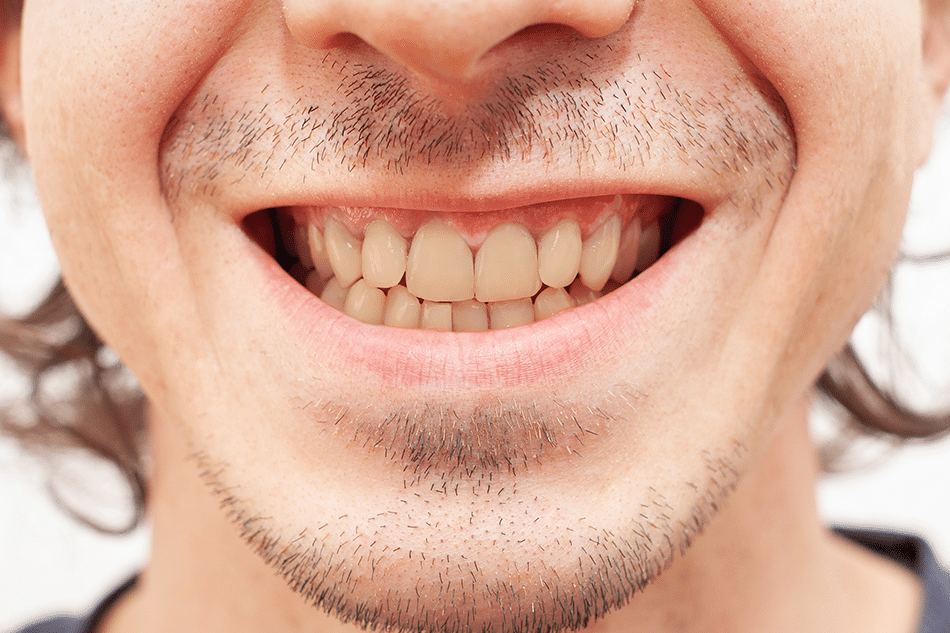
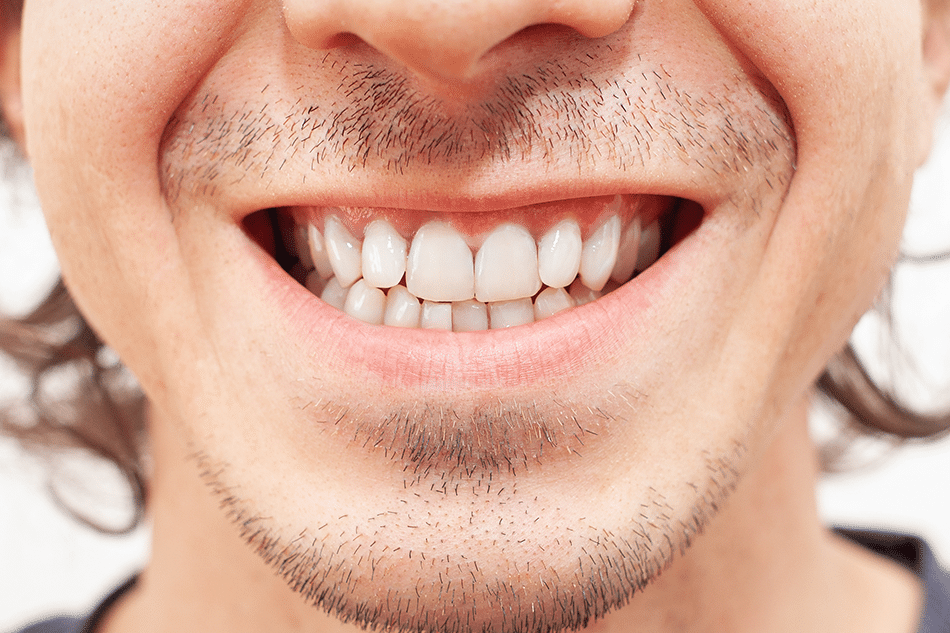
teeth whitened
star rating on Google
ARE THERE COUNTER-INDICATIONS FOR TEETH WHITENING?
- Large cavities and severe tooth destruction.
- Periodontal disease.
- Pregnancy – While not clinically proven, whitening is considered counter-indicated since no drug or medical product studies can be ethically conducted on pregnant women.
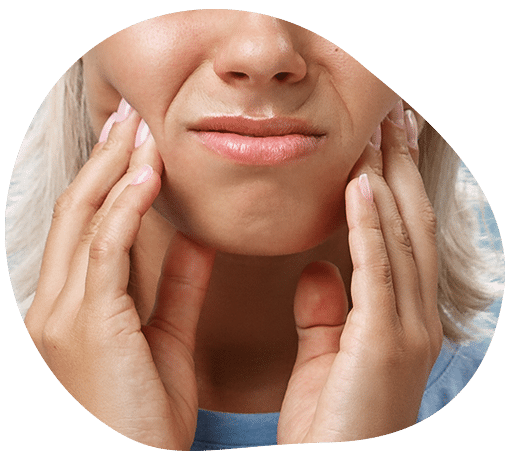
OUR TEAM OF DENTISTS
TEETH WHITENING PRICE
Don’t fall for false promises, no toothbrush, toothpaste, or lamp will give you the same whitening effect as professional treatment. Even if they work to some extent, the materials used are not the same as those applied in a dental office, and improper application can harm the oral mucosa. The main benefit of professional whitening is that a qualified dentist guides you through the entire process.
Teeth whitening is a fast, effective, and simple way to achieve a bright smile without any damage. The entire process takes one hour, after which you can resume your daily activities as usual. Whitening is one of the most common and completely painless dental procedures.
FREQUENTLY ASKED QUESTIONS ABOUT TEETH WHITENING
Does teeth whitening hurt?
No. You may experience temporary sensitivity to cold or air due to open dentin tubules, but this disappears within two to three days.
Does teeth whitening damage the enamel?
No. There is a common misconception that the chemicals used in whitening erode the enamel, but this is completely false. The chemical reaction simply creates new compounds that our eyes perceive as a lighter shade.
What can I eat and drink after teeth whitening?
It is recommended to avoid colored foods and beverages for at least five days after in-office whitening. If whitening is done at home, be mindful of your diet while using the whitening trays.
How long does the whitening effect last?
Although teeth can become up to four shades lighter in a short time, the longevity of the results depends greatly on oral hygiene and lifestyle habits. Smoking, certain foods, spices, and dark beverages like coffee, tea, red wine, and carbonated drinks can all affect the duration of the whitening effect.



